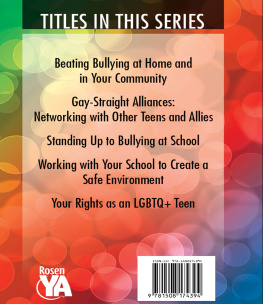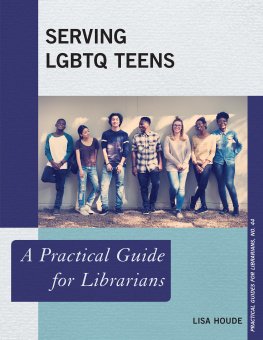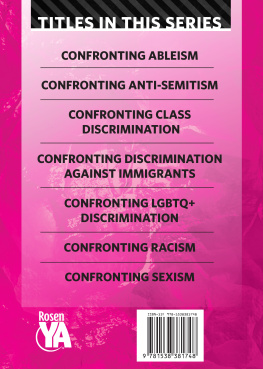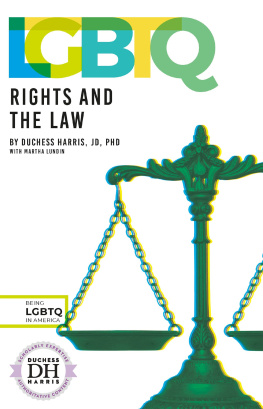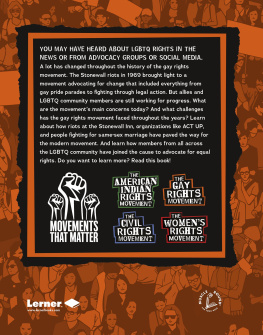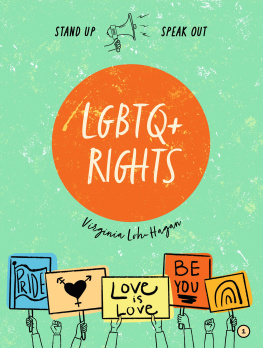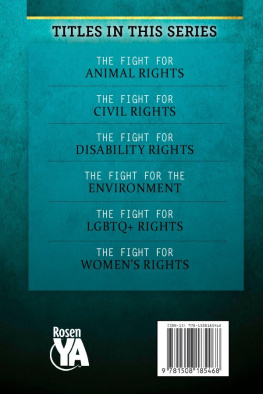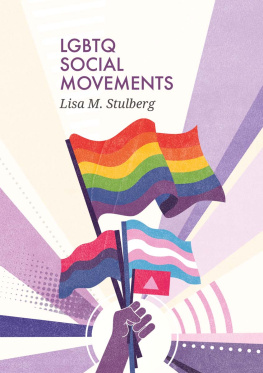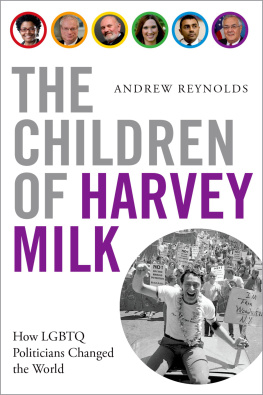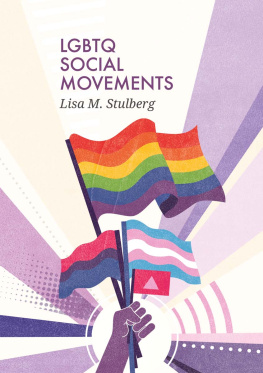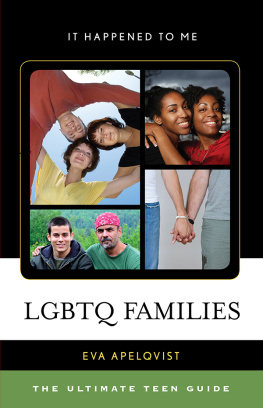Published in 2018 by The Rosen Publishing Group, Inc.
29 East 21st Street, New York, NY 10010
Copyright 2018 by The Rosen Publishing Group, Inc.
All rights reserved. No part of this book may be reproduced in any form without permission in writing from the publisher, except by a reviewer.
Names: Penne, Barbra, author. | Renehan, Patrick, author.
Title: Your rights as an LGBTQ+ teen / Barbra Penne and Patrick Renehan.
Description: New York, NY : Rosen Publishing Group, Inc., 2018 | Series: The LGBTQ+ guide to beating bullying | Includes bibliographical references and index. | Audience: Grades 712.
Identifiers: LCCN 2017006194 | ISBN 9781508174394 (library bound) | ISBN 9781508174370 (pbk.) | ISBN 9781508174387 (6 pack)
Subjects: LCSH: Sexual minority youthCivil rightsUnited StatesJuvenile literature. | Sexual minority youthLegal status, laws, etc.United StatesJuvenile literature.
Classification: LCC HQ76.27.Y68 W66 2018 | DDC 306.760835dc23
LC record available at https://lccn.loc.gov/2017006194
The LGBTQ+ community is an important part of our society, yet its members sometimes must march to have their basic rights recognized and protected. Here, members of the LGBTQ+ community participate in the New York City Pride March on June 26, 2016.
I n todays world, teens who identify as LGBTQ+ often face more bullying, harassment, and barriers to success than their peers. LGBTQ+ is an acronym that stands for lesbian, gay, bisexual, transgender, and queer or questioning. The plus sign includes the many other sexual minorities or groups who share a common struggle for rights and recognition with the aforementioned groups. Although LGBTQ+ people generally live fully integrated into their surrounding communities, the term LGBTQ+ community may be used to refer collectively to all people who identify as a sexual minority.
Unfortunately, there is a long history of discrimination against the LGBTQ+ community. This is because many people have narrow views on gender and sexuality. Such views generally treat heterosexuality (physical and sexual attraction to members of the opposite sex) as normal and homosexuality (physical and sexual attraction to members of the same sex) as unnatural. Likewise, some people believe that there are only two gender identities, male and female, and that a persons gender is determined at birth. In reality, many people dont identify with either of these two genders. There also those who do identify with one of those two genders, but it is the opposite gender of the one they were designated by their parents or doctor at birth. People usually try to justify such discriminatory views on the basis of traditional religious or cultural beliefs. However, mistreating or discriminating against another human being based on their identity is never okay. All human beings have a right to live safely and happily.
Because of the unique challenges they face, young LGBTQ+ people require special resources or protections to guarantee their safety and success. Like many other minority groups, special laws and social awareness are important tools to protect the LGBTQ+ community. As an LGBTQ+ teen, knowing about rights and having the resources to assert them is a great starting point for protecting oneself from bullying and discrimination.
So what are rights? Are humans born with rights? Or does the government grant them? Also, what rights do young LGBTQ+ people have? How does the law protect them? These are all great questions for LGBTQ+ youth to wonder about. Simply put, rights are the powers or privileges that a person may justly claim for themselves. All humans are born with basic human rights. Some of our most basic human rights are the right to life, the right to food, water, and clothes, and the right to an education. Rights are one of the most important tools the LGBTQ+ community has to ensure its safety. Governments are responsible for protecting all citizens rights. However, they do not always recognize or defend different groups rights equally. By speaking out, protesting, and using legal means to defend or reclaim their rights, the LGBTQ+ community can ensure fair access to facilities and safe environments at home, school, and work.
Knowing and fighting for your rights as an LGBTQ+ person puts you in great company. Admirable figures such as Harvey Milk (the first openly gay elected official in the United States), actors Ellen DeGeneres and Laverne Cox, and activists Marsha P. Johnson and Sylvia Rivera (who were partially responsible for the 1969 Stonewall riots) are just some of the famous names who have championed LGBTQ+ rights and brought them to national attention. Their stories are distinct, but their goal shared: to fight for the recognition and protection of their communitys rights.
UNDERSTANDING LGBTQ+ RIGHTS
W hat do you need in order to survive and thrive? Like any other young person, LGBTQ+ youth need clothing, food, and water. They need safe environments at home and at school. They need access to doctors and adequate medical care. They need loving relationships with family, friends, and romantic partners, and also fulfilling activities and hobbies. Perhaps most important, young LGBTQ+ people need freedom from physical or emotional harm.
Unfortunately, many young LGBTQ+ people see these needs go unmet. Teens in the LGBTQ+ community experience bullying, discrimination, and physical and emotional abuse at unacceptable levels in school, at home, in the workplace, and in their communities at large. Although difficult to track, various studies have reported that anywhere from 20 to 40 percent of homeless youth identify as LGBTQ+. LGBTQ+ teens are also disproportionately represented in the juvenile justice system, meaning they are arrested and sent to jail at higher rates than their non-LGBTQ+ peers.
What Are Rights?
A right is something that a person has a just claim to. They can be thought of as the powers or privileges to which an individual is entitled, or in other words, as rules about what a person has the ability or freedom to do. Rights may be social, ethical, or legal in nature. Some rights are considered natural rights. All human beings are born with these rights, regardless of their societys laws or customs. These include the right to life, the right to security, freedom from torture or cruelty, and freedom of religion and thought. Additional rights, known as legal rights, may also be given to citizens of a specific country. These rights may include the right to vote, the right to assemble, and the right to petition.

